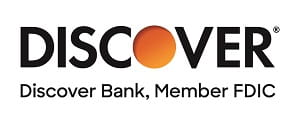Ease the pressure during your senior year by initiating your college applications ahead of time. By meeting the application deadlines set by your preferred schools, you can eliminate unnecessary stress. Discover a detailed roadmap for preparing your college applications during each high school year.
College Applications
College applications are comprised of supporting documents, such as transcripts, college letters of recommendation, personal statements, and test scores such as your SAT or ACT score that will be submitted for review. Some colleges and universities have their application form on their website for you to complete. A group of schools may share a single application that allows you to submit your application to multiple campuses. Many schools also use the Common Application, a free college application that is shared by over 900 schools. With all your information in one place, you can add additional supplemental information and pay for school-specific registration fees.
More >>> When are College Applications Due
College Admissions
While many students opt to apply to college regular decision, there are actually a variety of options known as college admission plans. As you research, you may come across your options for early decision, early action, regular decision, and rolling admissions. Your application timeline may look a little different depending on your school.
Applying for Early Admissions
Early decision and early action both have a deadline in November and allow you to hear back regarding your admissions decisions in mid-December. If you apply for an early decision, you are committing to attend the college if you are accepted. This is beneficial for students who know they want to attend a specific school. Early action is non-binding and you receive an early decision from the school, but are not required to commit to the college until the normal reply date of May 1. A few schools may have restrictive early action which allows you to apply to only a certain number of schools early.
If you are considering applying early admissions, realize that you will need to start early preparing and planning your application while being thoughtful, concise, and diligent in your writing. Your personal essays will need to be worked on prior to the November deadlines, so the summer before your senior year is a great time to devote to crafting an articulate and cohesive essay. You should ask for letters of recommendation your junior year or no later than September of your senior year, and you should prepare and plan to take the SAT or ACT at the end of 10th grade or the beginning of 11th grade.
While applying for early action or early decision is becoming more popular among high school students, know that the majority of students apply for regular decision admissions.
Regular Decision
Many colleges and universities have regular decision deadlines in January and February of your senior year and expect to receive your admission decision in March or April. While you may be able to push off working on your college application and gain more experience for your high school resume, realize the busyness of the fall of your senior year weighs on you, your teachers and counselors. Often your favorite teacher will also be bombarded with requests to write a letter of recommendation for your peers and friends. Ask for letters of recommendations as soon as possible to receive them in time for your application due date. A pro tip: ask your teachers, counselors, mentors, etc., if they would be willing to write you a letter of recommendation before you start the application process. That way you know exactly who to ask when you start the application process.
More >>> How to Write a Good College Essay
Rolling Admissions
Rolling admission deadlines vary, but most often accept applications through a specific period typically ranging from fall to spring. Many schools with rolling admissions accept students on a first-come-first-serve basis, meaning you should apply as early as possible. You may be notified of your acceptance only a few weeks after you submit your application. With no official deadlines, you will need to be motivated to set a personal deadline.
Schools with rolling admissions may also have a priority deadline, meaning students who apply by the priority deadline will have an acceptance advantage. While only you know what is best for you and your future, working to complete your college admission application in a timely (and even early!) manner can impress the acceptance committee.
Creating Your College Admissions Plan by Year
8th Grade College Admissions Plan
- If you are able, you may want to take algebra 1 or any other advanced courses that can earn you high school credit.
- Work hard to receive top grades in classes available for high school credit as these scores will be impacting your high school GPA which can be a large determiner in admission into colleges.
- You may want to check out what academic courses are available to you for your freshman year in high school.
- Over the summer, try to meet with your high school guidance counselor to review your course selection and chart a course to ensure you are able to take the necessary courses for your desired college (if known).
9th Grade/Freshman College Admissions Plan
- Become involved in school. You may want to join a club, play a sport, become involved in drama, band, orchestra, choir, or student government.
- Be on the lookout for volunteer or community service opportunities to help you become a better teammate and leader. These skills are valuable to many colleges.
- Begin researching your options for AP, IB, or dual credit courses available to you as a sophomore.
- Work to develop strong study skills and strive to get good grades.
10th Grade/Sophomore College Admissions Plan
- You should continue participating in your extracurricular activities, sports, volunteering, and community service. Your participation and dedication to activities other than your GPA can be attractive indicators to many college admission committees.
- Many 10th graders take the PSAT/NMSQT test their sophomore year. This is only a practice SAT test to help you gauge your possible strengths and weaknesses for the SAT test.
- If you are taking an AP, IB, or dual credit course, continue to study hard and receive top marks. These courses will not only be on your high school transcript, but certain colleges require certain scores in order to award you credit.
- If you haven’t already, this year is a good time to talk to you parents/guardians about your options when it comes to paying for college. Read though the article How to Pay for College to get an idea of the different options that may be available to help you pay for college.
- If you are interested in being recruited to play a college sport (and potentially receiving a scholarship to play) research the schools you’re interested in playing for, express your interest and send in film, stats, and other relevant information for your sport. Understand that different divisions may have different recruiting calendars and rules on how they can contact athletes. You can always initiate contact with a coach but realize the coach may be prohibited from responding to recruits. Check the rules of the specific division for more information.
More >>> Measuring Academic Fit: Reach, Match, and Safety Schools
11th Grade/Junior College Admissions Plan
This year is usually your last full year to pull together your strongest assets for your college application. This year will probably also be unusually busy with a full class schedule as well as involvement in leadership positions and becoming more serious about your college search. Do your best but remember to have fun!
- At the beginning of your junior year (or the summer before your junior year), collect a list of 15-20 colleges that you might be interested in attending. Use this list as a springboard and research each school. Look at the majors offered, the location, the student population, and any other interesting points that are important to you. Use this research to help you narrow down your list.
- Check with your schools of choice to see if they require the SAT or the ACT. They may not require a standardized test score at all. If you are given the option to include a score, you should realize that a high score could help you stand out. If your high school does not already schedule a test for you, you may need to plan and pay for the ACT or SAT.
- If you have the opportunity (and desire) look into possible leadership positions within the extracurriculars you’re involved in. Find a time to meet with your high school counselor and together review your college plans. Make sure you are currently on the correct path to reach your goals and modify if needed.
- Work hard to receive good grades and top marks in your AP, IB, and dual credit courses.
- Continue to research and apply to scholarships.
- Take a look at the College Snapshot Tool below to compare the costs of each college you are considering.
12th Grade/Senior College Admissions Plan
FALL
- At the beginning of your senior year, create a calendar listing out all the due dates for the applications for your prospective schools, potential scholarships you are planning to apply for.
o If you are applying for Early Decision or Early Action, make sure you know your deadlines and get your application(s) in on time.
o Most universities and colleges have regular application deadlines that fall between Jan. 1 and Feb. 15, but check with each school.
- Free Application for Federal Student Aid (FAFSA ®) begins accepting applications as soon as Oct. 1. Work with your parent/guardian to complete your financial aid forms. Some financial aid is given on a first-come-first-serve basis..
- For each college you plan on applying for, create a checklist for all information and forms that you will be responsible to submit. Begin collecting the necessary transcripts, writing the essays, and asking for the letters of recommendation.
- Early on in the school year, meet with your high school counselor to look over your grades and test scores. Determine if you should retake your ACT or SAT to try to get a higher score. This is also a good time to discuss potential scholarships that may apply to you.
o Retake the ACT or SAT again in the fall if you are looking to improve your score.
Read more about the differences between the ACT and SAT
WINTER
- For those who apply Early Decision or Early Action, you should expect your admission answer by the middle to end of December.
- If you are applying regular decision, your application is likely due between Jan. 1 and Feb. 15. Check each schools deadline to ensure you submit your application on time.
- Upon completion of your first semester grades, request your high school to send official academic transcripts to the schools you applied to.
SPRING
- Be on the lookout for acceptance letters. Congratulations!
o If you are placed on a waiting list, contact the admissions office and let them know you are still very interested. Students can still be admitted from the waiting list. - May 1 is National College Decision Day. You should accept (or reject) any schools that have accepted you. Once you decline enrollment, that school now has an opportunity to offer a spot to a student on their wait list.
- Sign up for on campus housing and/or a meal plan.
- Many schools will send out your financial aid award letters around the same time they send out acceptance letters. Together with your parents, review the financial aid awarded to you from each school. Contact the school’s financial aid office if you have any questions regarding the kinds of aid received.
- With your financial aid offer in hand, work together with your parents to create a budget for your needed books, supplies, and living expenses. Savings, a summer job, and scholarships may not be able to cover all the cost, so determine what federal and institutional financial aid is available to you. If necessary, apply for a student loan.
- If enrolled in AP, IB, or dual credit courses, prepare for the exams to earn top marks (and college credit) for the classes.
SUMMER
- Upon graduation, you may need to request your high school to submit a copy of your final transcript to your college.
- Learn when and how your tuition will need to be paid (is there an installment plan available or is the full cost due all at once?), and how and when your financial aid will be disbursed.
- You may want to work a summer job and set aside some of your earnings for college.
- Be on the lookout for communication from your college about housing (and possibly your new roomies!), new student orientation, and registering for classes.
- Enjoy your summer spending time with family and friends.
- Pack and prepare for a wonderful college experience!
Applying for College Not as a High School Senior
Not everyone is on the same timeline and that’s okay! You may take a year off to travel, to save up money for school, or maybe you graduated years ago and are now interested in receiving your degree. Either way, you’ll still have to apply for the same deadlines, but there may be some other circumstances that apply to you.
If you’re looking to take planned time off with the intent of returning to college, you will still apply to schools within their admissions deadlines and then request for a deferment. Not all schools have deferral programs, so check on their website or call the admissions office for more information.
You may not know where you want to go to college but want to take a year off. You will need all the same application information (letters of recommendation, college essay, SAT or ACT test scores, and any other required information), but your timeline will just be a year later. This may be more difficult as you are no longer in the swing of being a student, but entirely possible! You may also find some wonderful life experiences that could help you create a strong essay or personal statement for your application.
If you have been out of high school for more than a few years, you may need to reconnect with your high school to get an official high school transcript. The application deadlines will be the same, but you may need to set aside some time to prepare for the SAT or ACT. There may also be the possibility that the college may not require you to take the SAT or ACT, depending on how long you have been out of school. Contact your colleges of choice to see what they offer for non-traditional students.












